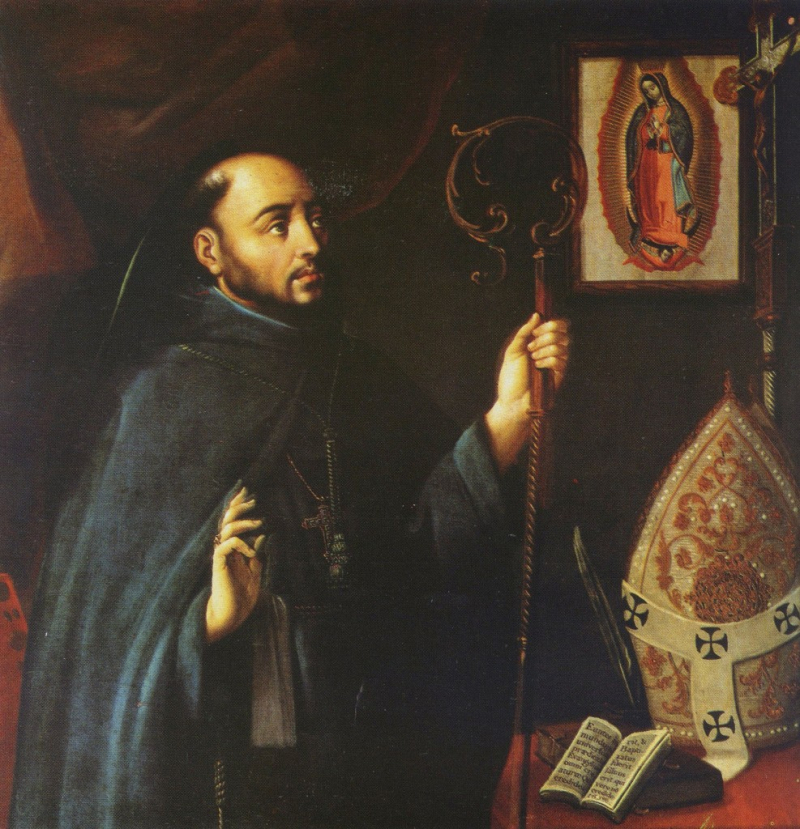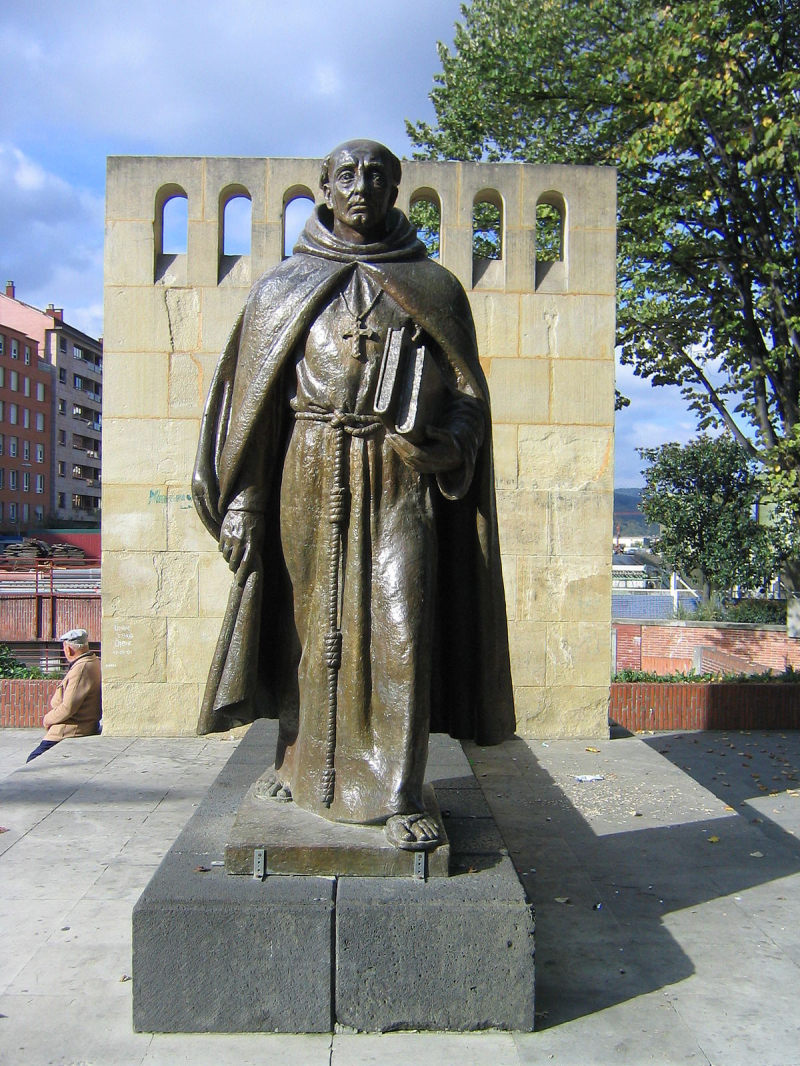Juan de Zumarraga
The first bishop and archbishop of Mexico, Juan de Zumárraga (1468-1548), was an outstanding representative of a group of 16th-century Spanish clergy in America who combined missionary zeal, a sensitive social conscience, and a love of learning. He is remembered as one of the most important historical figures in Mexico.
Juan de Zumárraga was born in the Vizcayan town of Tavira de Durango. He joined the Franciscan order as a young man and rose through its ranks to become the first bishop of Mexico in 1527. Soon after his arrival in Mexico in 1528, he clashed with the audiencia (an executive court) appointed by Charles V to govern Mexico in place of Hernán Cortés. The judges turned out to be greedy and corrupt men who only cared about enriching themselves at the expense of the Indians and the Cortés faction. Zumárraga attempted, but failed, to put an end to the audiencia's abuses of natives by combining his episcopal office with that of protector of the Indians.
Zumárraga's feud with the judges became so heated that he excommunicated the offenders and placed Mexico City under interdict. He was summoned to Spain in 1532 to justify his actions, and he did so with complete success. Meanwhile, the first audiencia had been replaced with capable and conscientious judges with whom Zumárraga had excellent relations.
Zumárraga did not oppose the encomienda despite his concern for Indian welfare (the assignment to a Spanish colonist of a group of Indians who were to serve him with tribute and labor). He believed that if properly regulated, this system could benefit both Spaniards and Indians.
Zumárraga was an inquisitor in Mexico from 1535 to 1543. He was very active in the prosecution of heresy and other violations of orthodoxy. The trial for heresy of Don Carlos, the Indian cacique of Texcoco, whom Zumárraga sentenced to death by burning, was the pinnacle of his inquisitorial career. This excessive severity earned him a reprimand from Spain and resulted in his removal from the position of inquisitor. Despite his principal biographer's earnest efforts to clear Zumárraga of the charge of destroying pre-Conquest codices, there is no doubt that he was responsible for the destruction of these and other relics of Indian history.
Zumárraga made significant contributions to Indian youth education and Mexican culture in general. In 1536, he founded the famous Colegio de Santa Cruz de Tlatelolco with the assistance of Viceroy Antonio de Mendoza to train the sons of Indian chiefs. Before it began to decline in the second half of the 16th century, this school had produced a generation of Indian scholars who helped Spanish friars write important works on the history, religion, and customs of the ancient Mexicans. Zumárraga also constructed hospitals for both races, introduced the printing press to Mexico in 1539, and wrote and published books for Indian religious education.
In 1547, Zumárraga was named Mexico's first archbishop. He died in Mexico City on June 3, 1548. Zumárraga, who was heavily influenced by Erasmus' and Thomas More's Christian humanism, drew heavily on Erasmus' books for the preparation of his own writings, but only selectively, using only material that was clearly orthodox. His ideas were a synthesis of medieval and Renaissance elements, but the medieval friar in him was undeniably dominant.









